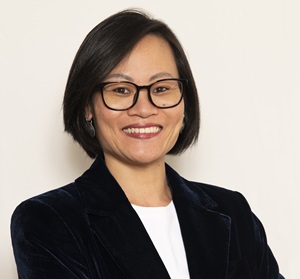How Singapore’s new FWA guidelines shape the future of business
- Josephine Tan

As organisations around the world rethink their operational strategies, Singapore is setting a significant precedent with the introduction of the Tripartite Guidelines on Flexible Work Arrangement (FWA). With the guidelines officially taking effect in December 2024, employers in Singapore are required to meet minimum standards for offering flexible work options, with additional best practices encouraged.

The shift towards flexible work models is not just a response to the ongoing demands of employees—it also represents an opportunity for organisations to enhance their adaptability and competitiveness in a global market. According to Karen Ng, Regional Head of Expansion, Enterprise, North and South Asia, at Deel, the guidelines signal Singapore’s commitment to fostering a more resilient workforce.
“The role of the Tripartite Guidelines on FWA underscores Singapore’s forward-thinking approach to building a resilient and adaptable workforce,” Ng told HRM Asia. “It’s a significant step in recognising the evolving needs of both employers and employees, setting a strong precedent for the region.”
FWA, including remote and hybrid models, are fast becoming a cornerstone for organisations seeking to attract top talent. As global hiring trends continue to grow, organisations in Singapore are now in a position to leverage a wider pool of talent from across the world. Deel’s State of Global Hiring Report 2023 highlighted Singapore’s attractiveness in the global job market, noting a 35% increase in hiring by foreign organisations, especially in sectors such as software development, engineering, and account executives.
“By embracing FWAs, organisations in Singapore can easily expand their business to new markets by leveraging global talent,” she continued. “The guidelines represent an opportunity for organisations to rethink traditional work models, fostering more agile and inclusive practices that benefit both employees and the bottom line.”
In addition to providing organisations with access to a global talent pool, FWAs also contribute to better employee satisfaction and productivity. A thriving, engaged workforce is not just a key factor for success, but also for building a sustainable business.
However, while flexible work continues to gain traction in small businesses and start-ups, large organisations such as Grab and Amazon are advocating for a full return to the office. This divergence in workplace strategies, particularly in the context of large organisations, highlights the complexities of adapting to a post-pandemic work environment.
Ng pointed out that the trend of advocating for a full return to office only represents a small fraction of the corporate landscape—just 1% of all businesses. Small and medium-sized businesses (SMBs), which make up 99% of enterprises in Singapore, are leading the charge with hybrid and flexible work models that reflect the realities of a distributed and global workforce.
“The spotlight on large organisations only represents a fraction of the corporate landscape,” Ng said. “SMBs remain the backbone of the economy, and their approach to work is more aligned with the realities of a distributed and global workforce.”
READ MORE: Time to adapt: Singapore businesses gear up for flexible work guidelines
The findings of a Harvard Business Review study lend support to the flexibility trend, revealing that organisations adopting hybrid models observed notable benefits, including reduced turnover and increased profitability.
At Deel, a fully remote company, Ng has witnessed the tangible advantages of flexible work models firsthand. She elaborated, “We’ve benefitted enormously from remote and global work, and our growth since we started out is a testament to this. In just five years, we’ve grown to serve over 35,000 customers worldwide, achieved profitability for two consecutive years, and exceeded US$5000 million in annual recurring revenue as of March 2024.”
Deel’s Future of Work Policy Summit
Last October, Deel’s Future of Work Policy Summit brought together leaders from industry, government, and academia to discuss the evolving landscape of work. Ng identified the global race for talent as a key theme. “Access to top talent is a significant competitive differentiator. Every industry is now in a global race for candidates, and organisations need to go where the talent is,” she asserted.
The summit also underscored how remote work accelerates globalisation, as Ng continued, “In the past, organisations would scale locally or nationally before expanding globally. Today, thanks to remote work and accessible distribution channels, even small organisations are operating as multinational entities from day one, leveraging global talent and markets to stay competitive.”
However, Ng stressed the importance of strategy in FWAs. “Organisations need to create and implement a coherent and consistent strategy. It’s important for organisations to establish robust processes around recruitment, onboarding, culture-building and performance management,” she advised. “The true potential of hybrid work can only be fully realised through leadership practices that amplify their impact and cultivate a vibrant workplace culture.”
As more organisations adopt FWAs, it is clear that the future of work is rapidly evolving. For organisations in Singapore, the Tripartite Guidelines represent an opportunity to rethink traditional work models and foster more agile and inclusive practices. Ng’s insights paint a compelling picture of a future where flexibility is not just a competitive edge but a cornerstone of sustainable success.
“Flexibility isn’t just a perk—it’s a competitive advantage that’s here to stay,” she concluded.






